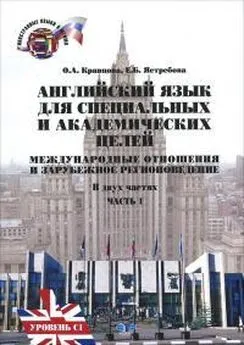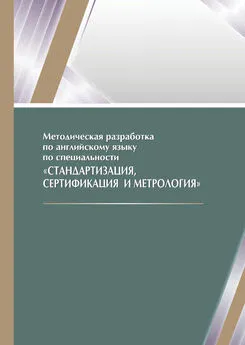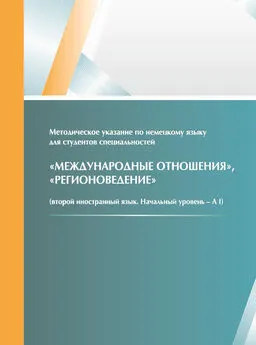Ольга Кравцова - Английский язык для специальных и академических целей: Международные отношения и зарубежное регионоведение. Часть 1
- Название:Английский язык для специальных и академических целей: Международные отношения и зарубежное регионоведение. Часть 1
- Автор:
- Жанр:
- Издательство:МГИМО-Университет
- Год:2015
- ISBN:978-5-9228-1210-8
- Рейтинг:
- Избранное:Добавить в избранное
-
Отзывы:
-
Ваша оценка:
Ольга Кравцова - Английский язык для специальных и академических целей: Международные отношения и зарубежное регионоведение. Часть 1 краткое содержание
Адресовано студентам четвертого курса факультетов и отделений международных отношений и зарубежного регионоведения.
Английский язык для специальных и академических целей: Международные отношения и зарубежное регионоведение. Часть 1 - читать онлайн бесплатно полную версию (весь текст целиком)
Интервал:
Закладка:
E. COMPLETE CONTROL OF THE MARITIME APPROACHES TO THE UNITED STATES BY THE NAVY IN ORDER TO PRECLUDE ANY POSSIBILITY OF INVASION
Unit II. US: from Democracy to Empire?
Make a list of key words and compare it with that of your partner.
Read the extract below and say which part of the text it belongs to.


Unit II. US: from Democracy to Empire?
All nations have grand strategies, though this does not mean all nations can achieve their strategic goals. Lithuania's goal is to be free of foreign occupation. But its economy, demography, and geography make it unlikely that Lithuania will ever achieve its goal more than occasionally and temporarily. The United States, unlike most other countries in the world, has achieved most of its strategic goals, which I will outline in a moment. Its economy and society are both geared toward this effort.
Listening for specific information and identifying emotions http://www.youtube.com/watch?v=WmIb2Jb-KC8
Watch the video ‘Logical fallacies part II', listen to the dialogue between the professor and the student. How can you describe their relationship and their emotional state? How many fallacies does the professor identify in his student's arguments?
Listen again and write down the names of the fallacies mentioned by the professor to match their descriptions. Those which are new to you are given below.
Red herring, appeal to pity, bandwagon, ad hominem
| Fallacy | Description |
| The speaker takes the sequence of events for cause and effect relationship | |
| Instead of criticising the opponent's ideas, the speaker attacks his/her character | |
| To prove that the argument is solid the speaker states that this idea is supported/shared by the majority | |
| The speaker presents an argument irrelevant to the issue aimed at diverting the opponent's attention | |
| The speaker assumes that A is like B in all respects, which is not true | |
| The speaker makes a claim aimed to create pity to win support for his/her idea |
Which of these are you unlikely to come across in a debate or essay?
List of logical fallacies from unit 1:
post hoc, circular argument, false analogy, false authority.
1. John McCain lacks a basic understanding of the current economic system. John McCain is not sure about the number of houses he owns.
2. “James Joyce is a prolific and talented writer. He is also demanding, capricious and harassing.” (from a literary review).
3. Increasingly, people are coming to believe that this country is heading for disaster.
4. The Republicans pass a new tax reform law that benefits wealthy Americans. Shortly thereafter the economy takes a nose dive. The Democrats claim that the tax reform caused the economic slide.
5. There has been no vision or inspirational leadership emerging from the First person of the province, communities are losing hope, and all the Premier does is wear a better outfit every day, and shining like a lamp pole.
6. We have worked hard to help eliminate criminal activity. What we need is economic growth that can only come from the hands of leadership.
7. The project may have certain flaws but, unless it is approved, thousands of children will find themselves deprived of free lunch.
8. Ukrainian experts claim that the plane was shot down by pro-Russian separatists.
9. ‘This bill (on banning a pesticide) reminds me of legislation that ought to be introduced to outlaw automobiles on the grounds that cars kill people,' said Tom Delay, Texas State Representative.
10. The tax reform is vital for our economy. After all, our economy depends on changes in taxation.
Unit II. US: from Democracy to Empire?

Without a doubt the ‘New Initiative' is a laudable project, which may contribute to improving our city's environment. It is no secret that pollution today is well below European standards and has increased dramatically after the new mayor took office. What worries me, though, in this project is the scale of involving our children in this endeavour. The very idea of having children work after classes when they are overwhelmed with studying for this new state exam is a serious put-off. The exam that our Ministry of Education has patterned on British education goes against our traditions and may adversely affect students' academic achievements. Really, sending children to collect litter or plant trees reminds me of soldiers being sent to pick up crops or help build their commander's country house. Most parents think that robbing their children of what little free time they have is totally unacceptable. Just the other day, a doctor spoke about it on the radio and insisted that our children's health is seriously damaged by lack of sleep due to extracurricular activities. Going to school is a full-time job. After all, children spend a lot of time at school. I am coming to the end. The ‘New Initiative' is an attempt to involve our children in community life; but this interest in children does puzzle me, coming from a person who declared bluntly that having children would ruin her career. Thank you!
Unit II. US: from Democracy to Empire?

The New Initiative has two aims: 1) involve children in their teens in community life and 2) teach them to be environmentally friendly. Keeping one's school, street, town tidy is part of it. Another important aspect of the project is introducing ecoliteracy course at school, in doing which students learn both the ways of sustainable living and work out practical projects of their own to ensure learning by doing.
https://www.youtube.com/watch?v=Ca_kI948JUA(14:56)

1. Can you sum up the central idea of Magna Carta and the Bill of Rights?
2. Before you watch the video ‘Magna Carta, English Bill of Rights, and American Government. From England with Love', can you make a guess as to whether the lecturer is going to be positive or negative about the English influence on American Government.
1. What principle of American government was laid by Magna Carter?
2. What ideas of English Government took root in the American colonies in the 18 thcentury?
| Names | Ideas |
| Constitutional monarchy | |
| Absolutism | |
| Papism | |
| Parliamentary supremacy | |
| Natural rights |
| Names | Ideas |
| Consent of the governed | |
| Salutary Neglect | |
| Town meetings |
Useful tips on how to write a good survey report are given in the Manual.
This unit offers practice in writing the three main parts of a survey report: Introduction, Main Body and Conclusion.
Let's start with looking at the core: Main Body.
Do you approve or disapprove of the United States conducting missile strikes from pilotless aircraft called drones to target extremists in countries such as Pakistan, Yemen, Somalia?
| Country | Approve (%) | Disapprove (%) | DK/refused (%) | Total (%) |
| United States | 52 | 41 | 7 | 100 |
| France | 27 | 72 | 1 | 100 |
| Germany | 30 | 67 | 3 | 100 |
| Greece | 8 | 89 | 3 | 100 |
| Italy | 18 | 74 | 8 | 100 |
| Poland | 32 | 54 | 14 | 100 |
| Spain | 12 | 86 | 2 | 100 |
| United Kingdom | 33 | 59 | 8 | 100 |
| Russia | 7 | 78 | 15 | 100 |
| Ukraine | 11 | 66 | 23 | 100 |
| Turkey | 7 | 83 | 10 | 100 |
| Egypt | 4 | 87 | 9 | 100 |
| 1Only the 2014 data is included |
Unit II. US: from Democracy to Empire?
Unit II. US: from Democracy to Empire?
| Country | Approve (%) | Disapprove (%) | DK/refused (%) | Total (%) |
| Jordan | 5 | 90 | 5 | 100 |
| Lebanon | 23 | 71 | 6 | 100 |
| Palestine ter. | 7 | 84 | 9 | 100 |
| Tunisia | 17 | 77 | 6 | 100 |
| Israel | 65 | 27 | 8 | 100 |
| Bangladesh | 22 | 70 | 8 | 100 |
| China | 35 | 52 | 13 | 100 |
| India | 28 | 36 | 36 | 100 |
| Indonesia | 10 | 74 | 16 | 100 |
| Japan | 12 | 82 | 6 | 100 |
| Malaysia | 6 | 80 | 14 | 100 |
| Pakistan | 3 | 66 | 31 | 100 |
| Philippines | 24 | 67 | 9 | 100 |
| South Korea | 23 | 75 | 2 | 100 |
| Thailand | 12 | 79 | 9 | 100 |
| Vietnam | 12 | 78 | 10 | 100 |
| Argentina | 5 | 87 | 8 | 100 |
| Brazil | 7 | 87 | 6 | 100 |
| Chile | 15 | 68 | 17 | 100 |
| Colombia | 9 | 86 | 5 | 100 |
| El Salvador | 11 | 73 | 16 | 100 |
| Mexico | 14 | 80 | 6 | 100 |
| Nicaragua | 9 | 88 | 3 | 100 |
| Peru | 10 | 80 | 10 | 100 |
From the table of data the most significant items are as follows. The only country (except the USA where 52% of respondents support the American policy) in which a majority of respondents (65%) approve of US drone strikes is Israel. The same situation can be found in France, where 27% of French stand for the US strikes against the above mentioned countries. It has been found that a large percentage of US allies and partners from Jordan (90%), Greece (89%), Nicaragua (88%), Egypt (87%), Spain (86%) etc. totally disapprove of the use of drones. Despite the fact that the strikes are aimed at Pakistani extremists that imperil their country, a significant number of Pakistani citizens (30%) refused to answer the question, while only 66% express disapproval.
Читать дальшеИнтервал:
Закладка:










